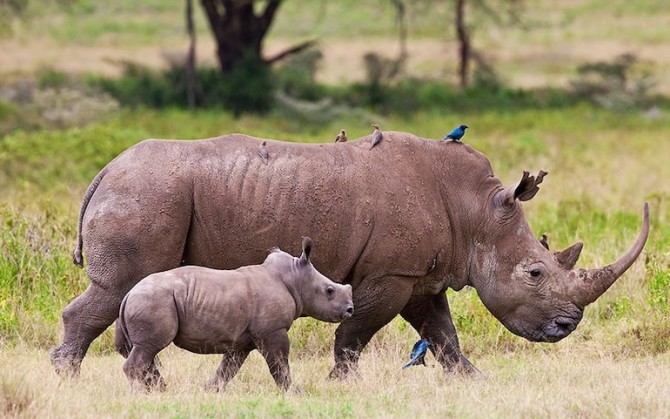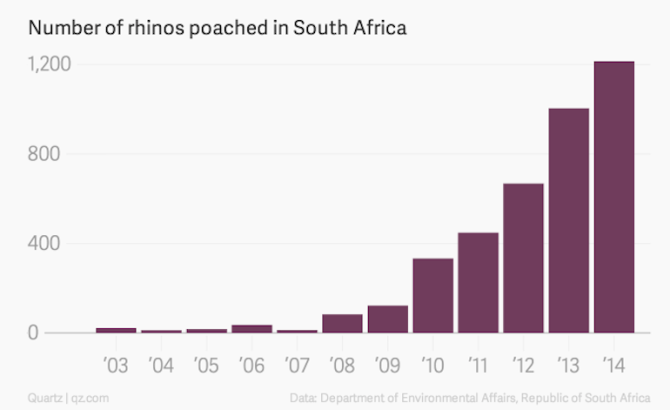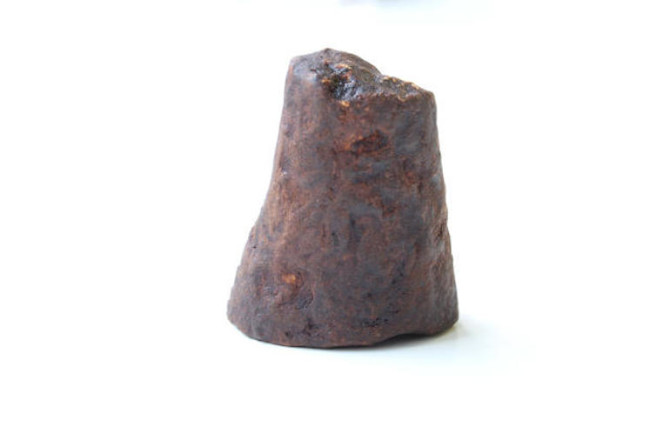So I know we’ve all read about how countries around the world eat things that many Americans would consider strange, when really it’s just the norm for them. Duh, cultural relativism.
But sometimes there’s a fine line between what’s right and what’s wrong, and typically when a culture’s actions raise eyebrows from other nations, then you know something ain’t right. For example, killing hundreds of endangered African rhinos to use their horns for beer.
Yeah, not cool.

Photo courtesy of telegraph.co.uk
So why is this a BFD? Because African rhinos are extremely endangered. In the past year, 1,215 rhinos were killed in Africa. That’s more than a 20% increase from the amount killed in 2013, which has wildlife protection agencies around the world screaming.
If these rates continue, we’ll have to say buh-bye to African rhinos in just 20 years. #tears

Photo courtesy of qz.com
Poachers are obsessed with rhino horns because they can earn mad cash from selling them. Many Asian countries, including China, believe rhino horns have medicinal properties. And because they’re usually sold illegally on black markets, a single horn can go for $30,000 per pound.
Unreal, right?
And what’s crazier is that China has been using these precious rhino horns to make homemade spirits. Apparently, horns cure hangovers.

Photo courtesy of fastcoexist.com
To fight this debauchery, a startup in San Francisco called Pembient has begun creating synthetic rhino horns that can be used in beer and other products instead of the real deal. They’ve actually partnered with one of the biggest breweries in Beijing to make a rhino beer.
The synthetic horns are claimed to be genetically identical to the real ones and will otherwise be sold in powder (below) and 3-D printed horns (above).

Photo courtesy of fastcoexist.com
Pembient’s hope is that by offering a legal form of rhino horns, the poachers will be screwed over in the market and will lose the incentive to kill rhinos in the first place. Win for the startup, win for biodiversity.
But decreasing illegal demand isn’t exactly easy. When faux fur replaced real fur, the amount of animals killed for fashion didn’t exactly decrease. Same thing with fake Christmas trees. But those are just two examples, and they’re not the best replacements.
Some argue that synthetic rhino horns may be just another one of these examples, but there are many others who disagree. Pembient claims that their product smells and feels like the real thing.

Photo courtesy of newscientist.com
If this project proves to be successful, Pembient plans on developing synthetic ivory, too. Elephants, we’re gonna to save you, too.
But the real question is, would you try fake rhino horn beer? #discuss

